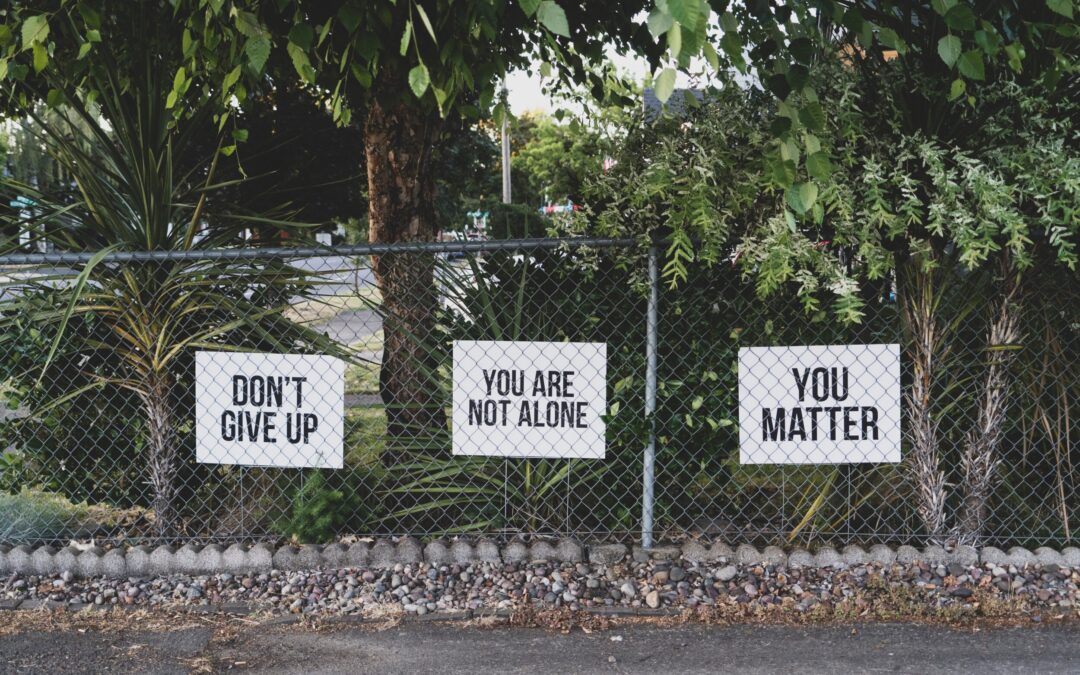As part of workplace safety and health, many of us as managers have come to understand more clearly, we must actively nurture and support staff wellness and mental health. In the past, some of us might not have prioritized workers’ mental health as an employer’s responsibility to consider. We are now faced with dramatic evidence that by not directing attention to mental health, we are unlikely to retain engaged, productive staff teams and volunteers. In an October 2021 HelpGuide article on Mental Health in the Workplace, they reported “recent estimates suggest mental health issues cost the global economy $1 trillion annually in lost productivity, absenteeism, and staff turnover.” Here are some things to think about to create a supportive team culture that works to acknowledge the difficult times we are in and honor each of us as human beings with unique experiences.
Put on your own oxygen mask first! You are unable to lead effectively without taking care of yourself and being compassionate about your own struggles. Reflection and learning can help put our own situation in perspective and teach us techniques to manage stress and overwhelm. If you demonstrate mindfulness and balance to the best of your ability, or even share your imperfect efforts, you will be modelling this behavior for others in your organization. One resource for moving from reactivity to intentionality is the Trauma Stewardship Institute’s Map for Managing One’s Day.
Acknowledge that people are grieving. You may or may not have lost a loved one to COVID, but someone on your team likely has. We have all suffered losses of various kinds during the pandemic—loss of freedom, diminished sense of safety, inability to visit extended family and celebrate life passages, economic impacts to our families, losses to our children due to school closures, etc. It is important for leaders to recognize this and talk about it. Helping Your Team Heal is a great article that discusses different forms of grief and how to help others find meaning.
Review your policies. Are there things you can do to create a more supportive work environment? Maybe now is the time to institute “No Meeting Fridays,” allow for flexible or partial work-from-home schedules, evaluate whether you can add paid time off, or add an Employee Assistance Plan to your organization’s benefits. Nonprofits often cannot compete with salaries offered by public and for-profit employers, but we can sometimes offer flexibility that makes a difference to our workers’ wellness and job satisfaction.
Build relationships and a sense of camaraderie. Treat your fellow staff and volunteers as whole people and take an interest in their lives outside of work. This will build a sense of connection and belonging, which is likely to result in increased engagement and deepened commitment as well as help people feel seen and valued. A team that knows and cares about each other is more likely to offer one another a more generous give and take, which over the long run, allows people to be successful in all aspects of their lives. Working remotely makes this informal relationship building harder, and it is possible to have social gatherings on Zoom or build extended check-ins into staff meetings. Outside of our virtual social gatherings, the Washington Nonprofits team also likes to share pet pictures, links to favorite songs or videos, and stories via Slack.
Give each other grace. As a person with a good deal of privilege, the pandemic has been humbling. I faced new obstacles, was sometimes unable to meet expectations, and gained new lived experience with failure. Colleagues responded with kindness and understanding, for which I am deeply grateful. I have in turn developed more empathy for others who may have bad days or weeks. The truth is that all of us ebb and flow in our ability to show up and be highly productive. Offering grace is something we can carry forward to create more compassionate workplaces.
Find resources that resonate and share them with your team. Here are some favorites from the Washington Nonprofits’ staff team:
Commit to ongoing learning. We all need regular attention to this issue, especially as the impacts of COVID-19 continue. On January 11 we hosted a special event focused on mental health and wellness for nonprofit workers. We identified what we can do to care for ourselves, staff, and volunteers, and explored questions of mental health and wellness with experts in the field. Watch the recording.
